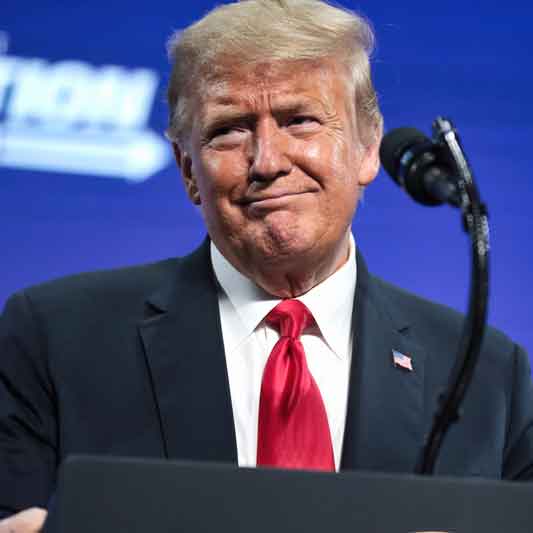During a speech at Fort Bragg on Tuesday, June 10, 2025, President Donald Trump made a notable factual error, wrongly stating that several countries had recently observed the anniversary marking the end of World War I and claiming that the United States skipped these commemorations—even though, in his words, Americans were “the ones who won the war.”
The remarks came as Trump addressed service members and their families at the major military installation near Fayetteville, North Carolina, against a backdrop of ongoing unrest in Los Angeles sparked by his sweeping deportation directive. Fort Bragg is known as the headquarters for the Army’s Special Operations Command, home to elite units like the Green Berets and Rangers.
In his speech, Trump argued that if not for US involvement, Americans would now be speaking German, joking that “maybe a little Japanese” would also be mixed in. He went on to assert that the US had secured victory in the war and would mark the occasion with its own celebration on Saturday, June 14. This reference to Japanese-language influence revealed a fundamental misunderstanding about World War I, as Japan fought alongside the United States, France, Great Britain, Russia, and Italy as part of the Allied forces against the Central Powers—Germany, Austria-Hungary, Bulgaria, and the Ottoman Empire.
The Mirror pointed out that Trump likely meant to refer to World War II, which was recently honored with VE Day ceremonies, rather than World War I. Typically, the end of World War I is remembered on Armistice Day, November 11.
Included in the partisan and confrontational speech to military personnel at Fort Bragg in North Carolina were several false statements.
Trump once again falsely claimed the 2020 election was stolen. He repeated a widely disproven story about the deployment of the Minnesota National Guard in 2020. He misrepresented his administration’s record on combating the ISIS terrorist group, brought up a fabricated account about immigration under President Joe Biden, and overstated the recruitment issues facing the military since Biden took office. He also made general and unsupported claims regarding the protests in Los Angeles.
Attending the Fort Bragg event were Secretary of Defense Pete Hegseth and Army Secretary Dan Driscoll. The visit took place just days before both the 250th anniversary of the Army and Trump’s 79th birthday, with a parade in Washington, D.C., on Saturday, June 14, 2025, to celebrate both milestones.
Because of the expected crowds and potential for protests, the parade event was designated a National Special Security Event, a status typically reserved for large-scale gatherings such as inaugurations or state funerals. This designation required enhanced collaboration among local agencies, the FBI, Capitol Police, and the National Guard, with the Secret Service leading the security operation.
Trump’s historical mistake came at a time of heightened political divisions. Polling from the Associated Press-NORC Center for Public Affairs Research found that 60 percent of Americans viewed Trump’s proposed military parade as a misuse of government funds. ABC News reported that the Army projected the parade would cost between $25 million and $40 million. Critics argued this money would be better spent supporting veterans, improving public infrastructure, or strengthening military readiness.
The same poll reflected widespread dissatisfaction with Trump’s leadership, showing that 60 percent of Americans disapproved of his job performance overall. Among Independents—a key voting bloc—this figure rose to 71 percent.

